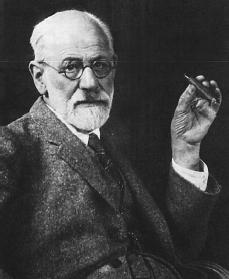Romney internal polling–myopia rather than rose-colored glasses
I don’t call these post-mortems, but in this election follow-up, The New Republic has disclosed some useful information. The gist is that Mitt Romney’s campaign thought it was likely to win because internal polling at the end said so. The Romney team’s own last-minute projections for six key states showed Romney possibly winning enough electoral votes for victory.

Romney and Ryan in Wisconsin
Here, from TNR:
“In an exclusive to The New Republic, a Romney aide has provided the campaign’s final internal polling numbers for six key states, along with additional breakdowns of the data, which the aide obtained from the campaign’s chief pollster, Neil Newhouse. Newhouse himself then discussed the numbers with TNR.”
The six states chosen for outtakes are Colorado, Iowa, Minnesota, New Hampshire, Pennsylvania, and Wisconsin.

Red states, blue states, purple states by senate representation
The first thing you notice about the Romney internal numbers is that they were nearly right where they focused on votes for Romney. In alphabetical order, here are the states lined up with the Romney campaign’s projections for Romney, and Romney’s actual results:
- Colorado: Romney vote projected at 48%. Actual Romney vote 46.1%
- Iowa: Projected Romney vote 46.5%. Actual Romney vote 46.2%
- MN: Projected Romney vote 43.5%. Actual Romney vote 45%
- NH: Projected Romney vote 48.5%. Actual Romney vote 46.4%
- PA: Projected Romney vote 46%. Actual Romney vote 46.7%
- WI: Projected Romney vote 45%. Actual Romney vote 46.1%
The late polls were nearly accurate. In five of the six states, the Romney campaign came within two percentage points of predicting Romney’s actual vote, and in New Hampshire the campaign miss Romney’s actual numbers by only 2.1 percent. In three of the states, the polls were off by less than one percent. One could expound on the Romney campaign’s obliviousness to a key fact about New Hampshire–namely its closeness to Massachusetts, home base or epicenter of Romney’s unpopularity. But the fact remains that most of the Romney team’s numbers were close to the mark. It will be interesting to see the campaign’s late polls for Florida, Ohio and Virginia, if they are ever released.

Voting in Florida
Furthermore, the Romney campaign actually underestimated the percentage of the vote that Romney went on to get in three of the states. Minnesota, Pennsylvania and Wisconsin–percentages highlighted here in red–actually went for Romney in slightly bigger numbers than his own campaign projected in internal polls. This is not wild miscalculation.
Where the Romney team did miscalculate wildly was the Obama vote. This is key: In a presidential election there is more than one candidate running, and dismissing the other major-party candidate the way you would dismiss Virgil Goode is not viable assessment.*
Here are the six states with the run-down on the Obama vote, as calculated by the Romney campaign, and President Obama’s actual outcome:
- Colorado: Obama vote projected at 45.5%. Actual Obama vote 51.5%
- Iowa: Projected Obama vote 46.5%. Actual Obama vote 52%
- MN: Projected Obama vote 47.5%. Actual Obama vote 52.6%
- NH: Projected Obama vote 45%. Actual Obama vote 52%
- PA: Projected Obama vote 49%. Actual Obama vote 52.1%
- WI: Projected Obama vote 49%. Actual Obama vote 52.8%
Again, the underestimates–i.e. all six states–are highlighted in red.
Now the most obvious comment is that Romney’s tacticians made the fundamental mistake of underestimating their opposition, the error warned against by strategists for millennia. However much you wish to despise the person/king/opposition, allowing your assessment to be distorted by your emotions is an elementary error. Machiavelli, whose critics gave Machiavellianism a bad name, would have recognized it. That Machiavelli himself died a despised and forlorn exile is beside the point.
Back to 2012–in regard to the Romney calculations, even hard-nosed numbers crunchers could not see that their numbers re Obama were way off. It did not even strike them as unrealistic that a popular incumbent president was polling, according to their picture, at 47.5 percent in Minnesota and at 46.5 percent in Iowa?
There are several factors at work here.
- One is ‘demographics’, which as we know did not play well for the GOP in the 2012 elections. Nor should it have. It stands to reason that the people making those well-exposed public comments about immigrants–often basically running against immigration–would be no better at evaluating what they were doing behind the scenes. The same personnel are now scrambling to find new shades of lipstick for the hog, mostly by promoting a few Latino politicians and a few fauxish immigration reforms. Back during the campaign, they kept well away from the people they were characterizing rather than wooing.
- Another is the millennial generation. It’s not just that cell-phone users tend to be under-polled; it’s that old measures do not always work. WARNING: OVER-GENERALIZATION AHEAD: Aside from Occupy Wall Street, millennials do not tend to be demonstrative. Demonstration with them tends to be a last resort, not a first. They are not vehement at first hue, they do not ask for things stridently. On the plus side, they tend to respect human dignity, they tend to appreciate courtesy, and they tend to let other people have a say. One can imagine how Rick Santorum or Newt Gingrich would have fared with this cohort.
- That leaves the third factor, not explored by TNR, of race. Romney strategists and even Romney pollsters operated in a partial blindness that left them unable to imagine other people voting differently from the way they themselves would vote, and the different race of the president made that back-of-the-eyelids view more plausible. Calling this ‘racism’ does not explain anything. It is a simple facet of the human brain to find difference, or newness, harder to understand than the familiar. Change is so hard to adapt to that even positive change–a promotion, winning the lottery–is stressful.**
For Republican campaigners and campaign operatives, the natural myopia was compounded by their other characteristics, or the related characteristics of their side–a continuing antipathy to genuine information, an unwillingness to see anything positive on the other side, and a corresponding willingness to shout down any unwelcome perception on their own side. These are useful attributes for the politicians who are hired guns for privilege rather than independent thinkers, just as they are useful for the media personalities like them–Limbaugh and Krauthammer et al. These are the qualities that strengthen a Gingrich or a Bachmann to run a campaign as shameful as the policies espoused by the candidate. But for running a national campaign, where winning depends on knowing something outside your own sphere of influence–not so much.
They were hoist by their own petard.
*In the interest of full disclosure: according to genealogy research mostly via ancestry.com, Mr. Goode and I may be distantly related.
**[Update Dec. 4: Overt racism was cultivated by the campaign, as we know. Sometimes the overt racism is attributed to blue-collar voters; this is false sociology. Persons with wealth, status and at least nominal education can and do participate in racist acts and speech.]































